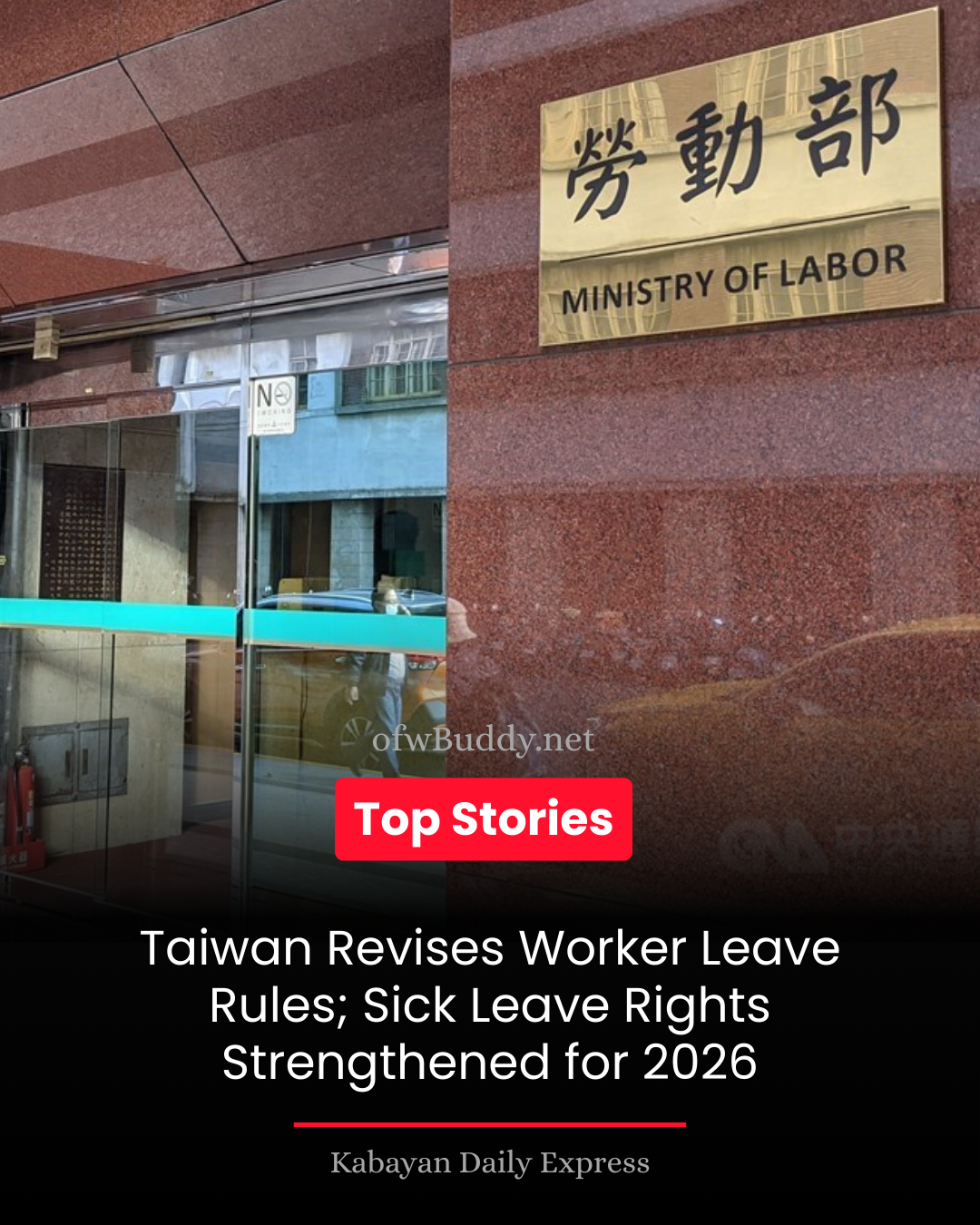Taipei, Taiwan — November 21, 2025
The Ministry of Labor has introduced major amendments to Taiwan’s worker leave regulations following the shocking death of an EVA Air flight attendant surnamed Sun, who continued working despite being seriously ill. After conducting interviews and labor inspections, officials identified four major management failures at EVA Air—most notably the excessive use of attendance control measures that severely restricted employees’ ability to take sick leave.
In response, the Ministry moved swiftly, announcing a draft amendment to the Regulations on Leave for Workers on Thursday. The reforms aim to reinforce employees’ right to sick leave while also expanding flexibility in personal leave and safeguarding attendance-related bonuses. The updated rules are slated to take effect on January 1, 2026.
Key Changes to the Leave Regulations
The Ministry of Labor stated that the last revision of the regulations was in 2023, and that updated rules are necessary to balance workers’ health needs with employers’ management rights. The new amendments revise Articles 7 and 9, and introduce a new Article 9-1.
1. Article 7 – Flexible Personal Leave for Family Care
The previous rule limited personal leave to 14 days per year, with no pay during absences. Under the proposed revision, workers who need to personally care for family members may take personal leave under the same annual limit and may now choose to take leave on an hourly basis.
The Ministry explained that Taiwan’s aging population and declining birthrate have increased the need for short-term family care. If family care leave and other options are depleted, employees may request personal leave from their employers to handle urgent caregiving needs.
Determination of whether an employee is genuinely providing care will be assessed by employers on a case-by-case basis, with no additional strict definitions provided.
2. Article 9 – Protection of Full Attendance Bonuses
The amendment to Article 9 specifies that personal leave used to care for family members cannot be counted as an absence that affects an employee’s full attendance bonus. This ensures that workers are not financially penalized for fulfilling caregiving duties.
3. New Article 9-1 – Stronger Protection for Sick Leave
To address workplace cultures that discourage employees from taking sick leave, the Ministry added Article 9-1. It states that employers may not impose negative consequences on workers who take up to 10 days of general sick leave within a year.
If an employee experiences adverse action—such as reduced performance scores or disciplinary measures—the employer must provide evidence that the action was unrelated to sick leave. The rule also prohibits using the number of sick leave days taken as the sole factor in performance evaluations.
The Ministry emphasized that these changes are designed to prevent companies from using attendance policies to pressure workers into working while ill, ensuring that similar tragedies do not happen again.
The draft amendments have now been opened for public review, and the Ministry expects the new regulations to officially come into force at the beginning of 2026.

